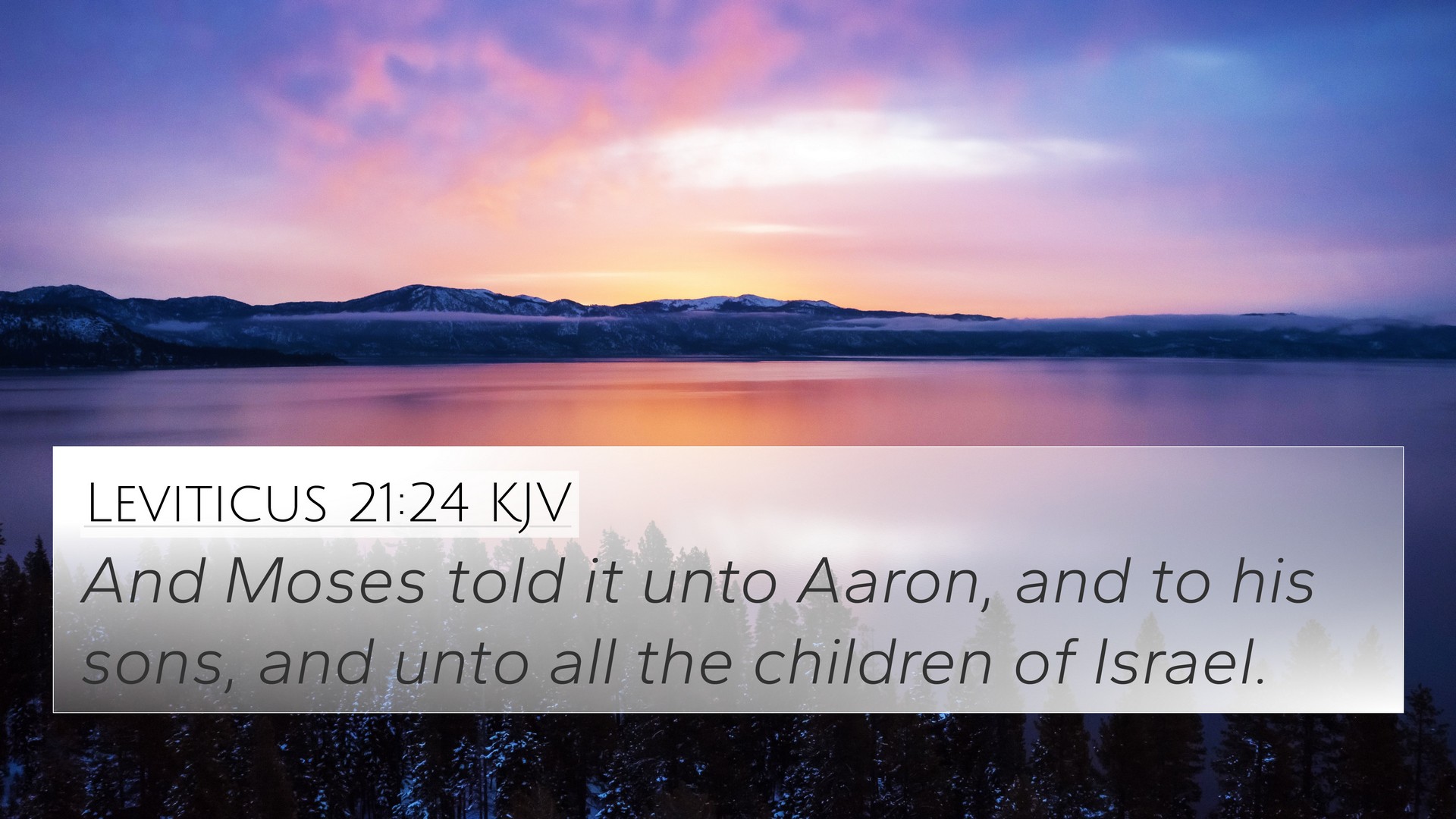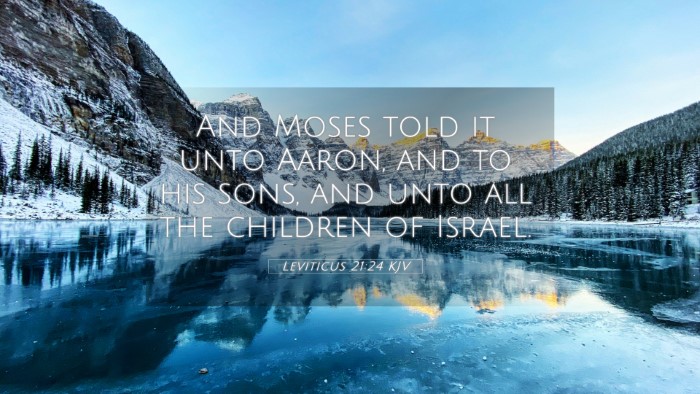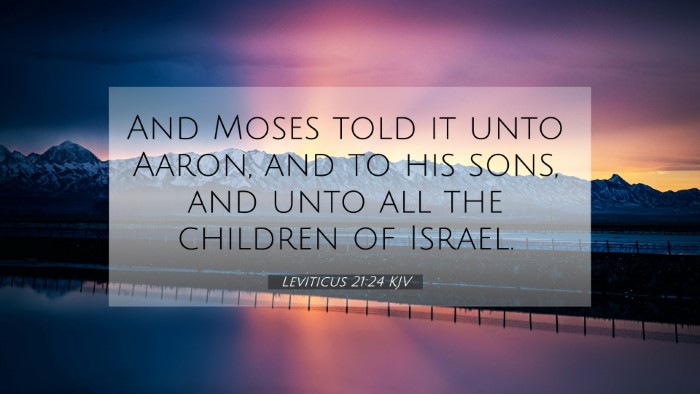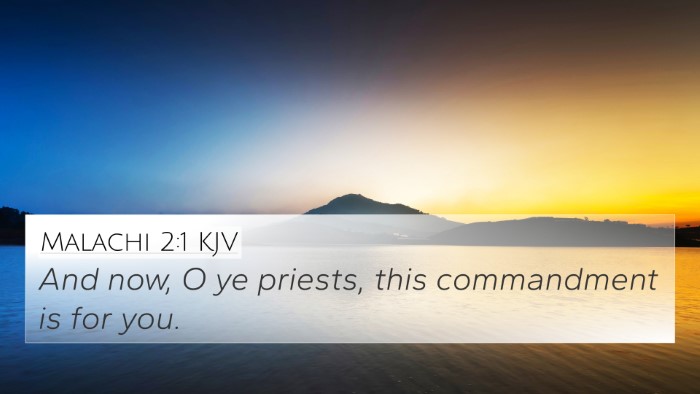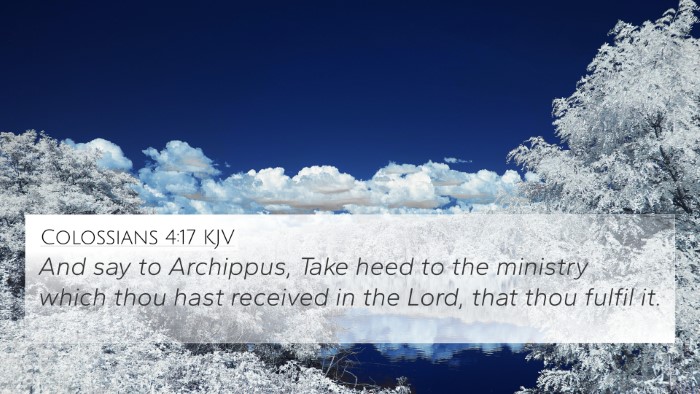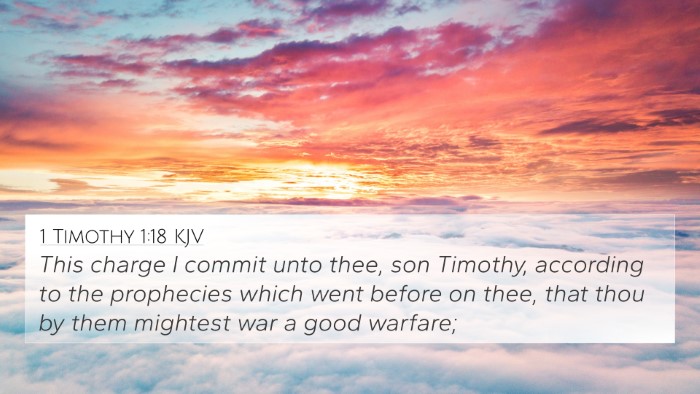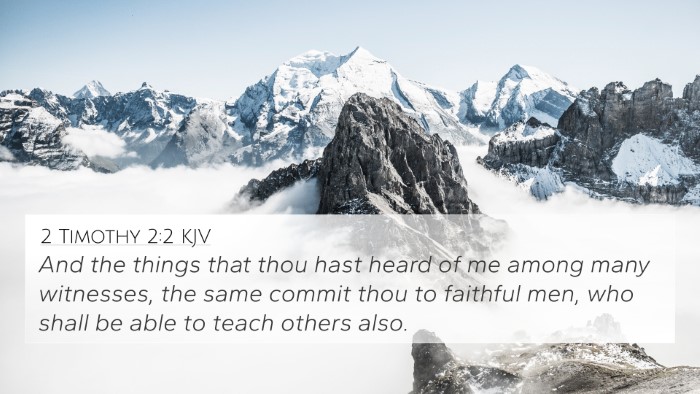Understanding Leviticus 21:24
Bible Verse: Leviticus 21:24 states, "And Moses told these things unto the children of Israel: and the children of Israel did so: and they brought their offerings and the vow unto the Lord unto the door of the tabernacle of the congregation."
Summary of Verse Meaning
Leviticus 21:24 captures a significant moment in the life of Israel, focusing on obedience and commitment to God's commandments. This verse reflects the covenant relationship between God and His people, emphasizing the importance of following divine instructions and the role of offerings as a response to God's laws.
Insights from Commentaries
-
Matthew Henry’s Commentary:
Henry emphasizes the importance of the priestly duties and the holiness required of the priests. He expresses how these regulations underline God's desire for purity among those who serve Him and how serious the consequences of disobedience could be.
-
Albert Barnes's Notes:
Barnes discusses the context of this verse in regard to ceremonially unclean individuals. He posits that the law reflects God’s perfect standard of holiness, and the children of Israel's compliance demonstrates their acknowledgment of God's authority and their dedication to His service.
-
Adam Clarke's Commentary:
Clarke interprets this verse as part of a larger theme of sanctification, reiterating God’s request for His people to uphold His commandments. He highlights the connection between obedience and blessings, showing how following God’s laws leads to a flourishing community.
Cross-Referencing Relevant Scriptures
Understanding Leviticus 21:24 also involves observing its connections with other passages. Here are some notable references:
- Exodus 28:43 - Discusses the garments for priests and their role in maintaining holiness.
- Leviticus 10:1-3 - The consequences of unholy service, emphasizing the seriousness of sacred duties.
- 1 Peter 1:16 - "Be ye holy; for I am holy," reinforcing the call to holiness for God’s people.
- Hebrews 7:26 - Relates to the qualifications of Christ as the high priest, aligning with Old Testament themes.
- Malachi 1:14 - A reminder of the reverence owed to God in offerings, linking New Testament principles with Old Testament commands.
- Romans 12:1 - Calls believers to present their bodies as living sacrifices, echoing the themes of devotion seen in Leviticus.
- Psalms 51:17 - Highlights God’s value of a broken spirit over mere ritual, compensating for ceremonial inadequacies.
Thematic Connections
This verse serves as a bridge to various theological themes present throughout the Bible, such as:
- Holiness: A consistent principle that runs from Leviticus through to the New Testament, as articulated in multiple letters of Paul.
- Obedience: The necessity of adhering to God's commandments, foundational in the lives of believers.
- Worship: Understanding the role of offerings and sacrifices in drawing near to God, illustrating the necessity of sincere worship.
- Covenantal Relationship: The idea that obedience leads to blessings reinforces God's faithful commitment to His covenant people.
- Christ as Fulfillment: Recognizing how Levitical laws and priestly offerings find their ultimate meaning in Christ’s sacrifice.
Conclusion
Leviticus 21:24 is more than a historical account; it serves as a practical guide for current believers. By studying this verse within the greater narrative of Scripture, one can appreciate its relevance in a modern context. Cross-referencing provides a richer understanding, linking principles of holiness, obedience, and worship through various biblical texts.
For those interested in exploring these connections further, using tools like a Bible concordance or a Bible cross-reference guide can enhance your study and understanding of the inter-Biblical dialogue present in these themes.
